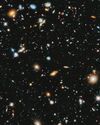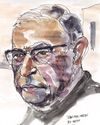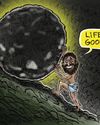
On the evening of 11th May 1960, the Israeli intelligence agency Mossad grabbed Adolf Eichmann off a street in a quiet district of Buenos Aires. Eichmann, formerly an SS officer and administrator, had been the key figure in organising the transportation of millions of Jews across Europe to the Nazi concentration camps. It was no wonder that Mossad wanted a word with him.
Upon capture, he was flown to Israel, and taken to trial on the 11th April 1961. The New Yorker commissioned the German Jewish political thinker Hannah Arendt to cover the trial. The trial ended in December 1961 with Eichmann's conviction for "crimes against the Jewish people, crimes against humanity, and war crimes during the whole period of the Nazi regime." Arendt's report, based on her observations of the defendant and of the conduct of the trial, was published in 1963 in her book Eichmann in Jerusalem: A Report on the Banality of Evil.
In her report, Arendt grappled with an enigmatic question: can one commit evil deeds without being innately evil? Her conclusion was a shocking and provocative theory which defied the conventional representation of evil as exceptional and demonic. Arendt did not see in Eichmann the monstrosity of a psychopath, but rather the mediocrity of a bland, mundane, unimaginative human being who, in her words, was "neither perverted nor sadistic... but terribly and terrifyingly normal" (p.276). According to Arendt, Eichmann had not recognised the atrocity of his acts due to a particular "inability to think, namely, to think from the standpoint of somebody else" (p.49). On the basis of what she saw and heard at the trial, she concluded that while acts of evil can result in monumental tragedies, the perpetrators of these acts need not in every case be inherently evil people. They may have motives they do not recognise as evil, and which may, indeed, be 'banal'.
Diese Geschichte stammt aus der October/November 2023-Ausgabe von Philosophy Now.
Starten Sie Ihre 7-tägige kostenlose Testversion von Magzter GOLD, um auf Tausende kuratierte Premium-Storys sowie über 8.000 Zeitschriften und Zeitungen zuzugreifen.
Bereits Abonnent ? Anmelden
Diese Geschichte stammt aus der October/November 2023-Ausgabe von Philosophy Now.
Starten Sie Ihre 7-tägige kostenlose Testversion von Magzter GOLD, um auf Tausende kuratierte Premium-Storys sowie über 8.000 Zeitschriften und Zeitungen zuzugreifen.
Bereits Abonnent? Anmelden

The Two Dennises
Hannah Mortimer observes a close encounter of the same kind.

Heraclitus (c.500 BC)
Harry Keith lets flow a stream of ideas about permanence and change.

Does the Cosmos Have a Purpose?
Raymond Tallis argues intently against universal intention.

Is Driving Fossil-Fuelled Cars Immoral?
Rufus Duits asks when we can justify driving our carbon contributors.

Abelard & Carneades Yes & No
Frank Breslin says 'yes and no' to presenting both sides of an argument.

Frankl & Sartre in Search of Meaning
Georgia Arkell compares logotherapy and atheistic existentialism.

Luce Irigaray
Luce Irigaray, now ninety-two years old, was, among many other things, one of the most impactful feminists of the 1970s liberation movements - before she was marginalised, then ostracised, from the francophone intellectual sphere.

Significance
Ruben David Azevedo tells us why, in a limitless universe, we’re not insignificant.

The Present Is Not All There Is To Happiness
Rob Glacier says don’t just live in the now.

Philosophers Exploring The Good Life
Jim Mepham quests with philosophers to discover what makes a life good.